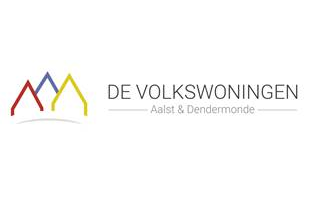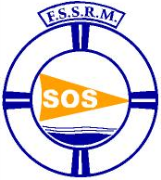FREQUENTLY ASKED QUESTIONS ON THE WORLD SOCIAL FORUM (PREPARED
COVID19 VACCINATIONS FREQUENTLY ASKED QUESTIONS ABOUT THEFREQUENTLY ASKED QUESTIONS REGARDING SERVICE ACADEMY NOMINATIONS
TEACHER RECRUITMENT DIFFICULTY CENSUS FREQUENTLY ASKED QUESTIONS
1 RECEIVABLES ARE FREQUENTLY CLASSIFIED AS A ACCOUNTS RECEIVABLE
1000 BOOKS BEFORE SCHOOL – FREQUENTLY ASKED QUESTIONS HOW
12116 STATE RETIREE BENEFITS TRUST FUND FREQUENTLY ASKED QUESTIONS
Frequently Asked Questions on the World Social Forum
Frequently Asked Questions on the World Social Forum
(prepared by Funders Network on Trade and Globalization)
What is the World Social Forum?
The World Social Forum is an open meeting place where social movements, networks, NGOs and other civil society organizations opposed to neo-liberalism and a world dominated by capital or by any form of imperialism come together to pursue their thinking, to debate ideas democratically, for formulate proposals, share their experiences freely and network for effective action.
Since the first world encounter in 2001, it has taken the form of a permanent world process seeking and building alternatives to neo-liberal policies. This definition is in its Charter of Principles, the WSF’s guiding document.
The World Social Forum is also characterized by plurality and diversity, is non-confessional, non-governmental and non-party. It proposes to facilitate decentralized coordination and networking among organizations engaged in concrete action towards building another world, at any level from the local to the international, but it does not intend to be a body representing world civil society. The World Social Forum is not a group nor an organization.
Who organizes the WSF?
Eight organizations make up the WSF Secretariat (formerly the Organizing Committee), which coordinates the process of building and internationalizing the Forum. The Secretariat comprises the organizations that started organizing the first WSF: Brazilian Association of Non-Governmental Organizations (Abong), Association for the Taxation of financial Transactions for the Aid of Citizens (Attac), Brazilian Justice and Peace Commission (CBJP), Brazilian Business Association for Citizenship (Cives), Central Workers Federation (CUT), Brazilian Institute for Social and Economic Studies (Ibase), Landless Rural Workers Movement (MST) and Social Network for Justice and Human Rights. The WSF Executive Secretariat in São Paulo, Brazil, is responsible for supporting the operacionalization of WSF activities. Issues of overall policy and the directions the WSF should take, as well as the methodologies of the annual events, are debated and resolved by the WSF International Council (IC), which currently includes around 140 member groups.
What are the activities of the WSF?
For its first five years, the WSF organized a major world meeting on the same dates as the World Economic Forum (Davos Forum). Four were held in Porto Alegre, Brazil and one in Mumbai, India. In 2005 it was decided that the annual world meetings would alternate with a polycentric World Social Forum, beginning in 2006 with simultaneous gatherings in Pakistan, Mali, and Venezuela. It is anticipated that the World Social Forum will move to Africa for the 2007 meeting. The WSF also promotes international Regional and Thematic Social Forums to pursue debates in specific regions and/or to discuss specific issues considered priorities by the International Council.
Who takes part in the WSF events?
All civil society organizations, movements and groups that declare their agreement with the Charter of Principles may register, participate with delegates and propose activities at the annual WSF meetings. Other activists or interested parties not belonging to any organization can participate as spectators in the open activities.
Who does not participate in the WSF?
The WSF is a meeting place for civil society organizations, networks and movements. For that reason, groups or individuals connected with governments or political parties are not permitted to participate as delegates in the WSF. However, the governments that host the WSF events can be partners in organizing them. Members of governments and parliaments may be invited to take part in a personal capacity, providing they agree to abide by the Charter of Principles.
It is the WSF’s intention to build another world without using violence and it therefore does not allow armed or military organizations to take part.
Does the WSF organize campaigns or action?
It is not the WSF’s place to promote campaigns or actions, nor to produce declarations or final documents at its events. The WSF is a place where civil society organizations, movements and groups can meet to debate their ideas and proposals and is not deliberative in nature. In this regard, the WSF does not constitute a locus of power to be disputed by the participants in its encounters.
No one is authorized, on behalf of the Forum, to express positions claiming to be those of all its participants. However, the WSF does enable participants to network, coordinate and propose concrete action or to produce documents on their positions.
Mark Rand
Funders Network on Trade and Globalization
Tel: 415-642-6022
Email: [email protected]
www.fntg.org
2015 FREQUENTLY ASKED QUESTIONS (FAQS) ON HOUSEHOLD SHELTERS AND
2017 MSAP COMPETITION FREQUENTLY ASKED QUESTIONS (UPDATED 02132017)
202021 NSERC UNDERGRADUATE STUDENT RESEARCH AWARDS FREQUENTLY ASKED QUESTIONS
Tags: (prepared by, world, forum, questions, social, (prepared, frequently, asked
- PAÍS (ZONA) ENCUESTA STEPS AÑO HOJA DE
- SR ALCALDEPRESIDENTE DEL ILMO AYUNTAMIENTO DE LA VILLA DE
- CAUSE DELL’ESPANSIONE DELLA POPOLAZIONE IN ALTRE AREE TESI
- SNIIM – MANUAL DE USUARIO SECRETARÍA DE COMERCIO Y
- REPERTORIO N RACCOLTA N CONVENZIONE PER LATTUAZIONE DEL PIANO
- RZODKIEWKA JEST TO ROŚLINĄ ZALICZAJĄCA SIĘ DO RODZINY KAPUSTOWATE
- KAU THE DEPARTMENT OF EUROPEAN LANGUAGES WRITING 2
- SMATRAM DA TVRDNJA F6KOJA JE PO KLJUČU NETAČNA (F62)
- FRANÇAIS MORTGAGE BROKERAGES LENDERS AND ADMINISTRATORS ACT 2006 ONTARIO
- GUIA DE SITIOS INTERNET NACIONALES E INTERNACIONALES SOBRE ISO
- MEETING THE EMPLOYMENT TRANSPORTATION NEEDS OF PEOPLE WITH DISABILITIES
- GUIDANCE PHYSICAL COORDINATION FACTOR 2 – PHYSICAL COORDINATION SCOPE
- BACKGROUND PAPER SUBMITTED TO THE COMMITTEE ON INDIA
- RAJZ ÉS VIZUÁLIS KULTÚRA ALAPOZÓ ÉS FEJLESZTŐ SZAKASZ (5–8
- RECENT RESULT FROM CMD2 DETECTOR BORIS I KHAZIN
- NZQA EXPIRING UNIT STANDARD 8772 VERSION 7 PAGE 3
- ASSET THRESHOLDS AND SOCIAL PROTECTION A ‘THINKPIECE’ MICHAEL R
- LEY 29493 DE IMPACTO AMBIENTAL PRESENTACION LA SUBSECRETARÍA
- UNCLASSIFIED CAREER BREAK SCHEME THIS INSTRUCTION APPLIES TO REFERENCE
- FORMULARIO DE SOLICITUD DE USO DE VIVIENDA (SA
- OBSERVACIONES Y SUGERENCIAS BORRADOR DE OBSERVACIÓN GENERAL SOBRE EL
- 11 NATIVE AMERICAN PEOPLES A JOURNEY OF SELFDISCOVERY BOOK
- ZSE6124132021 OBWIESZCZENIE ZAWIADOMIENIE O WYDANIU DECYZJI NA PODSTAWIE ART
- MALE VICTIMS OF DOMESTIC ANDOR SEXUAL VIOLENCE FUND 201113
- TEMAS SUGERIDOS PARA LAS EXPOSICIONES EL ÉBOLA LOS CELULARES
- CARMEN LAFORET RAMÓN J SENDER PUEDO CONTAR CONTIGO IMAGO
- LEADER OF ORGANIZED CRIME NJSA 2C52G LEADER OF ORGANIZED
- TALK OF SAYING SHOWING GESTURING AND FEELING IN WITTGENSTEIN
- LAST UPDATED FEBRUARY 24 2012 ICECUBE INSTITUTIONAL MEMORANDUM OF
- BAB 2 DATA DAN ANALISA 21 DATA MENGENAI PROYEK
DOSKONALENIE ODBIC PIŁKI SPOSOBEM OBURĄCZ GÓRNYM W PIŁCE SIATKOWEJ
ALLEGATO D SCUOLA SECONDARIA II GRADO (DOS) IO SOTTOSCRITTO
0 DOCUMENTOS DEL PROYECTO DOCUMENTO Nº 1 MEMORIA DOCUMENTO
2 UNIT I 113304 FLUID MECHANICS FLUID PROPERTIES
 LENGUA 2 EP EN RUTA EUSKARA ETA LITERATURA
LENGUA 2 EP EN RUTA EUSKARA ETA LITERATURANOMINA A RESPONSABILE ESTERNO DEL TRATTAMENTO (ALLEGATO B) IN
TEXTOS QUE SE RECOMIENDA UTILIZAR EN LA APROBACION MODIFICACION
 SATURDAY 4 DECEMBER 2021 INSERT NAME & ADDRESS DEAR
SATURDAY 4 DECEMBER 2021 INSERT NAME & ADDRESS DEAR IN TE VULLEN DOOR DE SOCIALE HUISVESTINGSMAATSCHAPPIJ INSCHRIJVINGSNUMMER INSCHRIJVINGSDATUM
IN TE VULLEN DOOR DE SOCIALE HUISVESTINGSMAATSCHAPPIJ INSCHRIJVINGSNUMMER INSCHRIJVINGSDATUMCHOROBA DŻUMA TO CHOROBA WYWOŁANA PRZEZ BAKTERIĘ YERSINIA PESTIS
CONSULADO GENERAL DEL PERU NUEVA YORK MODELO DE PODER
 WORKING TOGETHER TO DRIVE EXCELLENCE IN CARE FOR OUR
WORKING TOGETHER TO DRIVE EXCELLENCE IN CARE FOR OUR MARCA FLOR DE BACO TIPO DE VINO (DOCRIOJA) TINTO
MARCA FLOR DE BACO TIPO DE VINO (DOCRIOJA) TINTO LO QUE PUEDE HACER EN CINCO MINUTOS PARA ALIVIAR
LO QUE PUEDE HACER EN CINCO MINUTOS PARA ALIVIAR CURSOS DE SOCORRISTA EN INSTALACIONES ACUÁTICAS CENTRO EDUCATIVO LOS
CURSOS DE SOCORRISTA EN INSTALACIONES ACUÁTICAS CENTRO EDUCATIVO LOSHISTOIRE DES SPORTS COLLECTIFS IINTRODUCTION L’ACTIVITÉ LUDIQUE FAIT
COMMUNICATIONS MANAGER (WRITER) – APPLICATION EXERCISES THESE TWO
 KEMENTERIAN PENDIDIKAN DAN KEBUDAYAAN UNIVERSITAS UDAYANA FAKULTAS PETERNAKAN
KEMENTERIAN PENDIDIKAN DAN KEBUDAYAAN UNIVERSITAS UDAYANA FAKULTAS PETERNAKAN MAIDSTONE BOROUGH COUNCIL SPECIMEN DRAFT S106 AGREEMENT DATED
MAIDSTONE BOROUGH COUNCIL SPECIMEN DRAFT S106 AGREEMENT DATED R AQUEL MUÑOZ DE MORALES MARTÍNEZ 16 AÑOS 1º
R AQUEL MUÑOZ DE MORALES MARTÍNEZ 16 AÑOS 1º